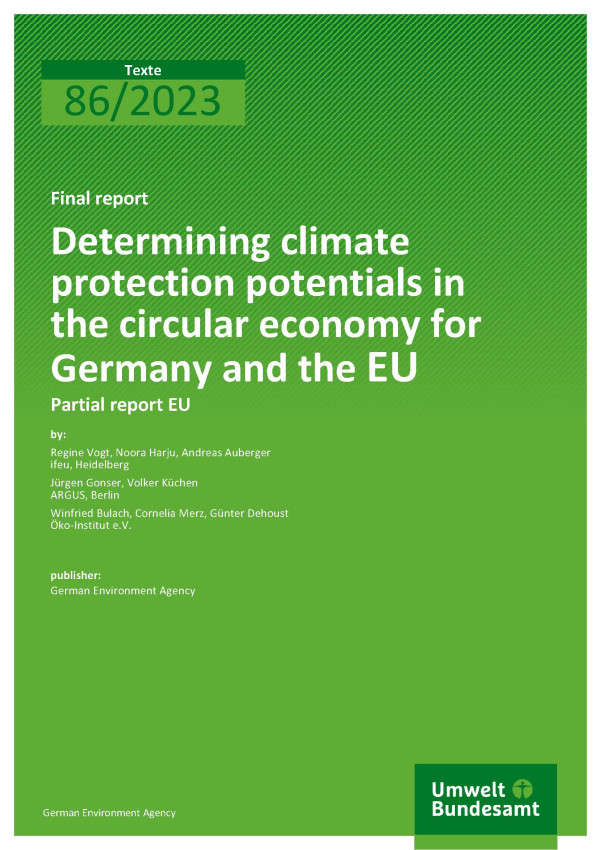Comment on the proposals of the European commission for a revision pharmaceuticals legislation with respect to environmental issues
(Sections Pharmaceuticals / International Chemicals Management; German Environment Agency)
The new proposal of the European Commission offers the possibility to strengthen environmental issues comparably to other objections of the authorisation process of a medicinal product for human use. The new provisions meet the requirements set by the EU with the Pharmaceutical Strategy and the Chemicals Strategy, including the Zero Pollution Ambition.
Ground for refusal
From an environmental perspective, the core element of the proposal is the introduction of a ground for refusal for environmental issues. The possibility to refuse a marketing authorisation is the basic prerequisite for compliance with all further measures and changes in the legislation including risks to the public health via the environment. In particular, it enhances data completeness at the time of approval. The new proposals enable the consideration of environmental impacts of medicinal products across different European regulatory frameworks. Therefore, a comprehensive risk management would be feasible. However, it should be considered to include well defined exceptions from data completeness at the time of application to not delay or refuse applications solely on environmental issues.
Environmental impact by manufacturing
The main issue needing improvement in the new regulation is the consideration of the environmental risks of emissions from manufacturing sites. The current proposal includes risks via manufacturing in the environmental risk assessment (ERA) of anti-microbials with respect to antimicrobial resistance (AMR) selection in the environment. This is an important and necessary change specifically in terms of the one-health approach to prevent local hot spots accelerating AMR. But the extension on any environmental risks would be needed for a more effective management. The environmental damage needs also be prevented from manufacturing of all active substances. Furthermore, to enforce this instrument and to create a level playing field for applicants control of the compliance is needed, which is not addressed in the proposals of the European Commission. Without any option of control the impact of including this emission route to the ERA might be too inconsequential.
Catching-up procedure & system of monographs on environmental data of active substances
The proposal intends to close data gaps by implementing a catching-up procedure for products authorised before 30 October 2005 and establishing substance monographs. Both measures are the next milestones for environmental protection on the way to a comprehensive management of legacy pharmaceuticals. However, improvements are needed in the revised Directive for increasing the transparency of environmental data.
Prescription status
UBA supports the proposal to include outcomes of the ERA in the decision-making process on the prescription status. The prescription status can be an effective risk mitigation measure to reduce the amount of problematic pharmaceutical residues in the environment. In the revised legislation only products, containing active substances fulfilling hazard-based criteria were considered. Here UBA recommends to consider also products with substances, for which risks to the environment were identified under the Water Framework Directive (2000/60/EC) and the Groundwater Directive (2006/118/EC).
Disclaimer
Any views expressed are the views of the stated sections of the German Environment Agency and may not under any circumstances be regarded as stating an official position of the German Federal Ministry for the Environment, Nature Conservation, Nuclear Safety and Consumer Protection or the Federal Republic of Germany.
Further reading
“Improving the regulatory environmental risk assessment of human pharmaceuticals: Required changes in the new legislation”, Gildemeister et. al. (2023): https://doi.org/10.1016/j.yrtph.2023.105437.







